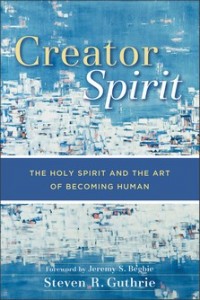 “What matters to God is the way we work, not what we do for work.” This is a common perception of work; assuming, of course that your work is ethical. But apart from this assumption, does God really care what we do for a living? Does God really care whether we install urinals or pacemakers? Or is God primarily concerned with how we do our work?
“What matters to God is the way we work, not what we do for work.” This is a common perception of work; assuming, of course that your work is ethical. But apart from this assumption, does God really care what we do for a living? Does God really care whether we install urinals or pacemakers? Or is God primarily concerned with how we do our work?
More Than Ethics
To be sure, God is concerned with the how of our work, that we don’t lie, cheat, or steal.. But assuming that your vocation and ethics are God-honoring (or, the “what” and “how” of your work are good), I suggest that God still cares what you do for a living, that he is intimately concerned with the essence of our vocation. In fact, if we can identify the essence of our vocation and reflect on it theologically, work can even become worship.
The Essence of Your Vocation
The “essence of vocation” is shaped by its principal goal or discipline. For instance, the principal discipline of medical surgery is biology. In order to make the proper incisions, a surgeon must know where human organs are located and how circulatory systems function. After you have identified the principle goal or discipline of your vocation, try to connect that principal to the nature and character of God. For instance, medical surgery reflects God as an orderly, creative Designer and as a merciful Redeemer. Here’s how.
Surgery exists because God created the human mind and body. Surgery works because God made the body in an orderly fashion. Surgery repairs because God has built redemption into the very fabric of life; our bodies can be restored. With the discipline of surgery in view—biology—and a little theological reflection, we can worship God through our work. In this case we get to witness his creativity, orderly providence, and merciful redemption. As a result, we worship God in Christ as Creator, Sustainer, and Redeemer (Col. 1:16-17, 20). Another term for this activity is theological integration, the integration of academic disciplines and/or vocational principles with the knowledge of God.
Integrated Work in the Bible
Theological integration is not an esoteric practice, but rather a mundane activity celebrated by Jesus. In the Gospels, a Roman centurion came to Jesus seeking healing for his servant. Jesus agreed to go with him; however, the centurion replied by saying that Christ need merely speak the word, not come to his house, and his servant would be healed. The centurion came to this conclusion by considering the essence of his work—authority—present in military principles. His reflection on the essence of his work, joined with faith, led him to conclude: “For I, too, am a man under authority, with soldiers under me; and I say to this one, ‘Go!’ and he goes, and to another, ‘Come!’ and he comes, and to my slave, ‘Do this!’ and he does it” (Matt. 8:9). In response, Jesus praised the centurion for this great faith. By reflecting on the essence of his work through faith, the centurion was able to glorify God. His work must have never been the same.
God is concerned, not merely with how you work, but what you do for work. Consider the essence of your vocation and try connecting it to the nature and character of God. Identify what discipline or principle drives or sustains your line of work—science, math, language, arts, sanitation, service, construction—and trace it to the nature and character of the triune Creator. In cultivating theological integration, work can become worship.
This article originally appeared at The High Calling.



